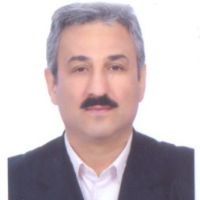An Identification of Farmer's Technical Knowledge of Soil and Vater Issues (case study in Tehran, Khuzestan, Golestan and Mazandaran Provinces)
Author(s):
Abstract:
This study is aimed at an identification of farmers'' knowledge level on soil and water issues، hardware and software requirements، and to characterize farmers'' educational priorities in Tehran، Khuzestan، Golestan، and Mazandaran Provinces. Three pilot plans were selected and evaluated in each province. Field survey was employed and the required data collected via personal interview whit the farmers، filling questionnaires، and consulting with local experts and authorities in the studied regions. The reliability of data was assessed through Cronbach''s Alpha coefficient being about 0. 81. Results showed that in spite of many activities and attempts done in the studied regions (including educational and extensional affairs، administrate executive plans، i. e.، irrigation and drainage networks، encouraging farmers to level their land channel lining، developing pressurized irrigation systems، etc.)، the actual condition of water and soil management in the study regions is a long way away from the ideal. In general، the farmers'' technical knowledge regarding soil and water issues was relatively low among the farmers questioned. However، they benefited from an average knowledge of agronomy e. g. rotation، application of nutrients and pesticides/herbicides mainly due to the fact that those inputs are payed for، and also one can actually observe their beneficial effects in the field. Most farmers (96. 6%) did not measure the applied water to their fields، instead، they concentrated on their indigenous knowledge. Time (56%) and amount (64%) of irrigation water applied to the fields was based upon the farmer''s local knowledge. Over 90% of the farmers involved in the study were not familiar with internet، computer and neither whit soil and water management softwares. The conducted training courses for farmers were mainly related to agronomy issues (81%). Rarely، they were provided training courses concerning such soil and water issues as، irrigation scheduling، irrigation management، and advanced irrigation methods. Main challenges in the regions under study were insufficient inputs (39%)، water scarcity (28%)، and inadequate agricultural machinery (12%). Educational priorities in the studied regions were also determined and presented.
Keywords:
Language:
Persian
Published:
Iranian Journal of Agricultural Economics and Development, Volume:43 Issue: 3, 2013
Pages:
387 to 397
magiran.com/p1135666
دانلود و مطالعه متن این مقاله با یکی از روشهای زیر امکان پذیر است:
اشتراک شخصی
با عضویت و پرداخت آنلاین حق اشتراک یکساله به مبلغ 1,390,000ريال میتوانید 70 عنوان مطلب دانلود کنید!
اشتراک سازمانی
به کتابخانه دانشگاه یا محل کار خود پیشنهاد کنید تا اشتراک سازمانی این پایگاه را برای دسترسی نامحدود همه کاربران به متن مطالب تهیه نمایند!
توجه!
- حق عضویت دریافتی صرف حمایت از نشریات عضو و نگهداری، تکمیل و توسعه مگیران میشود.
- پرداخت حق اشتراک و دانلود مقالات اجازه بازنشر آن در سایر رسانههای چاپی و دیجیتال را به کاربر نمیدهد.
In order to view content subscription is required
Personal subscription
Subscribe magiran.com for 70 € euros via PayPal and download 70 articles during a year.
Organization subscription
Please contact us to subscribe your university or library for unlimited access!



